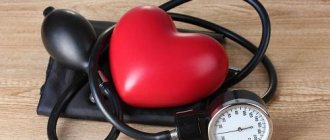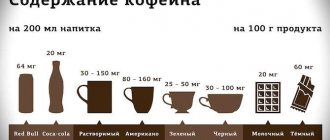Doctors joke that just one cup of coffee can be fatal for a person if it falls on his head from a great height. In other cases, you don't have to worry if you drink the drink in moderation. While caffeine tolerance varies from person to person and death from caffeine does occur, in most cases it is a combination of factors. However, those who have ever experienced an attack of tachycardia or a panic attack after drinking their favorite drink are usually interested in what is the lethal dose of coffee for a person, and how to find out how much you can drink safely.
How much coffee does it take to die?
It is worth noting that no studies have been conducted on volunteers in this area, and doctors in their statements rely only on some data available after the fact. Perhaps the fact that not a single person has this drink, beloved by billions of people, entered in the cause of death column will sound soothing. It can trigger a heart attack, especially when combined with lack of sleep, stress, or alcohol, but relatively healthy people may not worry.
There are sometimes reports online that somewhere in the world people are dying after consuming a large dose of caffeine. Please note that this is usually pure caffeine, in tablets, powder, diluted in alcoholic energy drinks, but definitely not a cup of coffee that you drink in the morning or at work to cheer you up.
Children and teenagers are more susceptible to caffeine overdose. This is because they have no understanding of how caffeine affects their young bodies. And they sometimes have health problems, such as heart problems, that have not yet been diagnosed.
Scientists estimate that people who died from a caffeine overdose consumed about 200 mg per kilogram of body weight. Taking 1-2 grams of caffeine (powder, tablets, liquid) can be a lethal dose of coffee for a person at one time.
There is such a thing as LD50 - a semi-lethal dose that, in laboratory conditions, causes the death of half of the test group. Of course, no studies have been conducted on humans, but theoretical calculations show that a dose of 192 mg/kg can be semi-lethal. This means that a 70-pound person consuming 13.44 grams of pure caffeine has a 50% chance of survival.
If you are poisoned by coffee, an ambulance usually saves you, so it is unlikely that you will die from your favorite drink, especially since you physically cannot drink that much coffee.
Overdose and first aid
Signs that indicate an excess of an alkaloid in the body can be divided into symptoms: mild poisoning and severe intoxication. A state of mild poisoning is indicated by:
- high blood pressure;
- cardiopalmus;
- nausea, loss of appetite;
- headaches associated with hypertension;
- dizziness;
- painful shine in the eyes;
- convulsions.
How to help yourself with a mild overdose:
- You need to drink 1-2 liters of cool water; induce vomiting;
- take activated carbon;
- drink a glass of milk;
- lie down to rest.
After 20 minutes, the discomfort will pass.
Remember: it is impossible to engage in productive work all day long without rest. It is harmful! A full night's sleep will restore vigor and restore strength.
Sometimes people don’t notice how much coffee they drink per day. They worked day and night and gave it their all. We wanted to take a short break and cheer up with a few servings of an invigorating drink. The dangerous substance accumulated unnoticed in the body and caused severe poisoning .
The following symptoms appeared:
- unpleasant headache;
- blue discoloration of skin tissue;
- sticky sweat;
- temperature;
- convulsions;
- fainting.
First aid for severe intoxication:
- Call an ambulance immediately;
- act: unbutton the victim’s clothes;
- open the windows and let fresh air into the room.
When calculating the daily norm for yourself, it is important to take into account your health status, habit of bitter drinks, and physical activity.
Who should avoid or limit their intake of caffeine-containing cocktails:
- Doctors recommend that hypertensive patients drink no more than two cups of instant coffee with milk during the day;
- Caffeine is contraindicated in high intracranial pressure due to vasospasm causing headaches;
- Those who have vision problems need to be more careful: eye pressure may increase. Is it dangerous!
- Teenagers are at risk; their limit is two daily coffee servings. Taking them in a row is strictly prohibited;
- The alkaloid is dangerous for pregnant women and nursing mothers;
- The International Olympic Committee classifies caffeine as an unacceptable drug. An athlete faces disqualification if more than 12 micrograms of a substance per liter is found in his urine.
Need to know! A teenager should refrain from drinking caffeine-containing drinks, including energy drinks, if the “over-aged child” drank alcohol or smoked the day before
Lethal dose of coffee for humans in cups
A 30 ml cup of espresso contains an average of 60 mg of caffeine. In an Americano (200 ml) – about 150 mg. This means that a 70kg person would have to drink 223 cups of espresso or 89 cups of Americano to have a 50% chance of dying.
Even 89 cups is a large volume, so it is unlikely that anyone could drink that much at once. But would 100 cups in 24 hours be a deadly risk? Since caffeine has a metabolic half-life of 4 hours, this issue becomes a little more complex. Assuming 100 cups were evenly distributed over a 24-hour period (one every 14.4 minutes), we can calculate the total amount of caffeine in the bloodstream over the course of a 24-hour period.
If you drink a cup of Americano every 15 minutes, your caffeine level will remain around 2.4 g - much less than the reported LD50 of 13.4 g. Even if you drink a cup every 5 minutes, your blood caffeine level will reach 7 .2g is dangerous, but you will probably survive, especially with medical help.
The lethal dose of coffee for humans is not calculated in spoons; this concept refers to caffeine, not coffee. However, on average espresso takes 1 teaspoon, 7 grams, that is, the lethal dose of coffee in spoons is 223 teaspoons. One and a half kg of ground coffee.
The main mystery of coffee has been revealed: why does it invigorate some people while others fall asleep?
Why does coffee invigorate some people, while others make them fall asleep?
Photo: RUSSIAN LOOK
"MOTOR KILLER"
“Sensational truth about instant coffee!”, “Shocking lecture from an expert!” — with such comments, the video went viral on social networks and became a hit. The video shows a fragment of a speech by family medicine doctor and nutritionist Konstantin Zabolotny. The doctor claims that when processing beans to produce instant coffee, the shell containing the main dose of caffeine is removed - this valuable substance is used to make medicines, energy drinks, etc. Coffee lovers get the core, consisting of theobromine and other substances that do not stimulate, but, supposedly, on the contrary, relax and lull. “That’s why many people want to take a nap after a cup of instant coffee, and I drink it at night to sleep well,” sums up the expert. And he advises under no circumstances to use the drink as a stimulant before a long journey while driving: there is a very high risk of falling asleep and getting into an accident. If you drink freshly brewed bean coffee, then there is no danger of dozing off at the wrong time, Dr. Zabolotny reassures.
The video sparked a heated debate. Some refute this with their own example: the greatest surge of energy comes after instant coffee, grain coffee is much weaker! Others thank the lecturer: now we finally understand why we feel sleepy. Still others are indignant: the mentioned sleeping agent theobromine is not in coffee at all! And still others sigh: even the strongest grain drink doesn’t invigorate us, why?..
To clarify all these questions, we turned to authoritative scientific and medical sources.
“In fact, any coffee contains caffeine, theobromine, and other alkaloid substances that primarily affect our brain,” explains Dmitry Nikogosov, a geneticist and head of the analytical department of the Atlas biomedical holding. - There is always much more caffeine than other alkaloids - both in bean coffee and in instant coffee, and how our body perceives this substance depends on five main factors.
1. The ratio of “accelerators” and “brakes” in the brain
We have special molecules in our brains that capture caffeine - adenosine receptors. There are four types: two stimulating, invigorating ones - like a gas pedal, and the other two - like a brake pedal. In most people, “inhibitory” receptors predominate over those that speed up brain function. When such a person drinks coffee, the brake is blocked by caffeine, and the brain begins to work faster, concentration improves, and overall energy is felt.
At the same time, there is a smaller proportion of people who have the opposite ratio of adenosine receptors: “gas” receptors, which initially accelerate more than “braking” ones. In this case, caffeine preferentially blocks the stimulatory receptors (since they predominate), and as a result, brain function slows down, people begin to feel weak and drowsy.
ON A NOTE
“If you, like most people, have a predominant “inhibitory” type of receptors, which you can block with caffeine and feel cheerful, then with long-term consumption of large doses of strong coffee, there will be even more such receptors,” warns Dmitry Nikogosov. This happens because our brain and the body as a whole are a very stable system that always strives to balance any external influence and adapt to it. If we increase stimulation with caffeine, the brain increases inhibition. As a result, addiction occurs: the traditional dose of the drink does not give the effect of vigor, and without another cup of coffee, weakness sets in even more than before.
The main mystery of coffee revealed
Photo: RUSSIAN LOOK
To get rid of such unpleasant manifestations, neuroscientists advise taking a break, completely abstaining from coffee - in just a few days the number of adenosine receptors will return to normal.
2. Liver condition
Everything we eat and drink is absorbed into the blood, and the blood always passes through the liver. In this organ, various substances from foods and drinks are metabolized, that is, processed, and then returned to the blood and supplied to other internal organs, including the brain. As caffeine is processed, its concentration and, accordingly, activity decreases.
At the same time, if a person has liver disease - cirrhosis, hepatitis, then liver enzymes work weaker, less caffeine is filtered out, and more of it reaches the brain. Therefore, the effect of coffee is sharper and stronger.
“These people—who have low liver enzyme activity due to illness or genetics—need to drink less coffee than a person with a healthy liver,” our expert advises. One or two cups of a relatively weak drink will help you cheer up well, but if you exceed this norm, you may experience palpitations, headaches and other troubles.
3. Pressure indicators.
There are three options:
“If you have low blood pressure, then coffee will raise it, but not much: “Contrary to myths, caffeine has a weak effect on blood pressure,” explains Dmitry Nikogosov.
- If the pressure is normal - 120/80 - then caffeine most likely will not change it at all. That is, the effect of vigor associated precisely with the rise in pressure will be almost unnoticeable.
— If a person has high blood pressure, then even the slightest rise is very noticeable, and the risk of a hypertensive crisis increases.
STAY IN TOUCH
The main targets that coffee affects in our body are the brain, heart and blood vessels. Namely:
— Brain : concentration improves, mental activity is activated, overall tone increases.
- Heart : the strength and frequency of heart contractions increases. Because of this, coffee is dangerous for coronary heart disease, atrial fibrillation, and hypertension.
— Vessels : blood vessels of the muscles, heart and kidneys dilate (therefore coffee has a slight diuretic effect), in the rest of the abdominal organs the vessels narrow.
4. Companion drinks
Many people love coffee with milk, but recently “horror stories” have appeared on the Internet: they say that this combination is almost poison.
“Caffeine binds tightly to milk proteins, which is why it enters the hepatic bloodstream more slowly and eventually reaches the brain and other organs gradually, in smaller portions,” explains our expert. “Therefore, when we drink cappuccino, latte and other coffee drinks with milk or cream, we get a longer and smoother effect. Coffee has a gentler effect on the heart, blood vessels and nervous system.
But if you drink coffee with freshly squeezed grapefruit juice with pulp or eat a slice of grapefruit, then the effect of caffeine, on the contrary, will increase. Studies have shown that the substances contained in this type of citrus fruit block one of the active liver enzymes. Therefore, caffeine, passing through the liver, is processed and neutralized to a lesser extent, reaches the brain to a greater extent, and acts sharper and stronger. By the way, no such effect was noticed from fresh orange juice.
5. Amount of water in the body
In summer, when we often sweat due to the heat, the body may lack fluid. If its loss is not replenished, the volume of circulating blood decreases, and the concentration of substances coming from food and drinks in the blood is higher. Therefore, if you drink little water in hot weather and indulge in coffee, you need to be prepared for the fact that the stimulating effect of caffeine will be noticeably stronger.
ADVICE
If after a cup of drink your hands begin to tremble, too much nervous excitement occurs, or a frightening heartbeat appears, drink water as soon as possible. This will quickly reduce the concentration of caffeine in the blood and weaken its effect.
ASKING QUESTION
Grain or instant - what's the difference for the body?
“Instant coffee undergoes more processing, and fewer active substances remain in it, so it is slightly weaker than grain coffee and, let’s say, more predictable in terms of its effect on the body,” notes Dmitry Nikogosov, a geneticist and head of the analytical department of the biomedical holding Atlas. — But unprocessed coffee beans contain more invigorating alkaloids and, at the same time, other active substances, so its effect is more multifaceted and, to a certain extent, still mysterious to us: it is more difficult to predict possible positive and negative effects for different organs and systems. So research continues.
Lethal dose of coffee for a person at one time
Let’s note right away: you won’t drink that much. Even if you make the drink very concentrated, you physically will not be able to drink much of it, the body will quickly feel the overdose and begin to get rid of intoxication through vomiting and diarrhea. Your heart is pounding, you feel extreme weakness, muscle cramps - it is unlikely that in this state you will take a few more sips, and they will linger in your body.
Sometimes, after drinking 5-7 cups of coffee in a day, people feel as if they are dying. Fear of death, cold sweat, dizziness, racing heart, inability to breathe - all these symptoms of an overdose of your favorite drink are familiar to many coffee lovers. But in fact, everything goes away in 15-20 minutes. If you realize that you have drunk a lot of coffee, try to induce vomiting, drink clean water, calm down and provide access to oxygen.
They are unlikely to kill you by treating you to a cup of coffee, even incredibly strong one. People with cardiovascular diseases usually monitor their condition and drink strong coffee carefully. After a few sips you will already feel that you are not feeling well and stop.
Lethal dose of coffee for a teenager
But children and teenagers need to be closely monitored, not allowing them to drink a lot of coffee. In 2011, a girl died of a caffeine overdose after drinking just two cans of energy drink in a row—a total of 480 milligrams of caffeine, a dose that would be unlikely to cause even the slightest discomfort for many adults. It is the combination of energy drinks and coffee, as well as coffee the morning after a stormy alcoholic party, that mainly leads to the fact that teenagers and young adults can receive a lethal dose at one time.
- A safe dose of caffeine for adults is about 600 mg of caffeine, that is, 3-4 cups of coffee per day. 5 or 6 cups may lead to overdose.
- A safe dose of caffeine for a teenager is 200-400 mg, that is, no more than two cups per day, and not in a row, and not after alcohol, energy drinks or cigarettes.
If it seems to you that you have consumed a lethal dose of coffee, your heart hurts greatly, hallucinations begin, vomiting and drinking water do not help - call an ambulance. This type of poisoning is unpleasant in the hospital, but most likely you will survive.
Can you die from coffee?
Through a series of studies, it was determined what dose of caffeine is lethal. Moreover, the number of cups that can cause cardiac arrest depends on the type of coffee beans and the technology for preparing the drink. These factors directly affect the concentration of the invigorating alkaloid. In any case, the volume of liquid turns out to be so large that it is simply impossible to drink it.
Drinking espresso can significantly worsen your health.
Coffee leads to a near-death state under the influence of the following factors:
- exposure to stress;
- consumption of alcohol and energy drinks;
- the presence of pathologies of the liver, heart or blood vessels;
- smoking;
- caffeine tolerance.
In addition, the individual characteristics of the body have an influence. You need to take into account the speed of metabolic processes, the condition of the urinary system and kidneys. Abuse of coffee drinks is especially dangerous for people suffering from chronic diseases. In this case, coffee will be one of the factors that can lead to cardiac arrest. True, not the only one.
Drinking coffee drinks in excess has negative effects on the body, but death solely from an overdose is unlikely. This is due to the following facts:
- in a couple of hours a person will physically not be able to drink 10–15 liters of even ordinary water;
- drinking too much provokes vomiting, which removes harmful substances from the body, including caffeine;
- even if intoxication occurs, it will lead to vomiting;
- Coffee beans contain acids, which, when excessively concentrated in the intestines, lead to diarrhea, which rids the body of harmful substances.
In addition, caffeine itself acts as an antidote. It has a tanning effect on the mucous membranes of the digestive organs. Toxic substances that get inside stop being absorbed.
Conclusions:
- You need to drink a lot of coffee to die: the lethal dose for a person is about 100 cups per day. On average, one and a half kg of ground coffee.
- The lethal dose of coffee for a teenager is about 40-50 cups, provided there are no heart or kidney diseases.
- Death occurs more often from caffeine in tablets, powder or ampoules, rather than from coffee - you simply won’t drink that much.
- Doctors recognize a safe dose for teenagers as 1-2 cups of coffee per day, for adults – 3-4.
- Even very severe coffee poisoning usually does not lead to death, and the hospital will save you.
How does coffee affect the body?
Caffeine is a strong central nervous system stimulant. The alkaloid molecules have a similar structure to particles of adenosine, a hormone that is produced in the body in response to fatigue. Caffeine blocks the functioning of adenosine receptors, therefore prolonging the active state and driving away sleep. Dopamine is released, so about an hour after drinking the drink, a person’s mood improves.
Caffeine stimulates the adrenal glands to produce adrenaline and cortisol. As a result, blood pressure increases slightly, blood flow increases, and oxygen supply to the brain improves. But such effects are typical only in the case of moderate consumption of coffee in quantities not exceeding 2-3 cups per day. An overdose of caffeine leads to serious disruptions to the functioning of the brain, cardiovascular system, and internal organs. High concentrations of the alkaloid in the body cause coma and even death.











